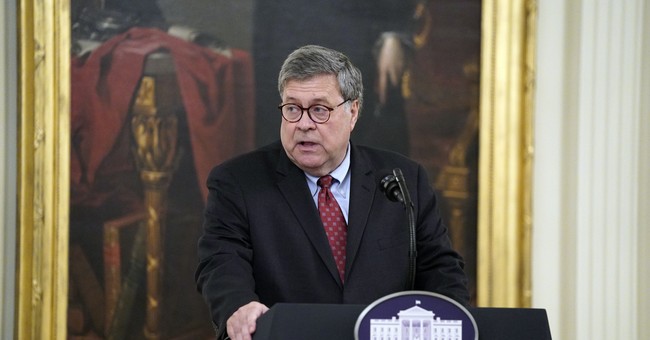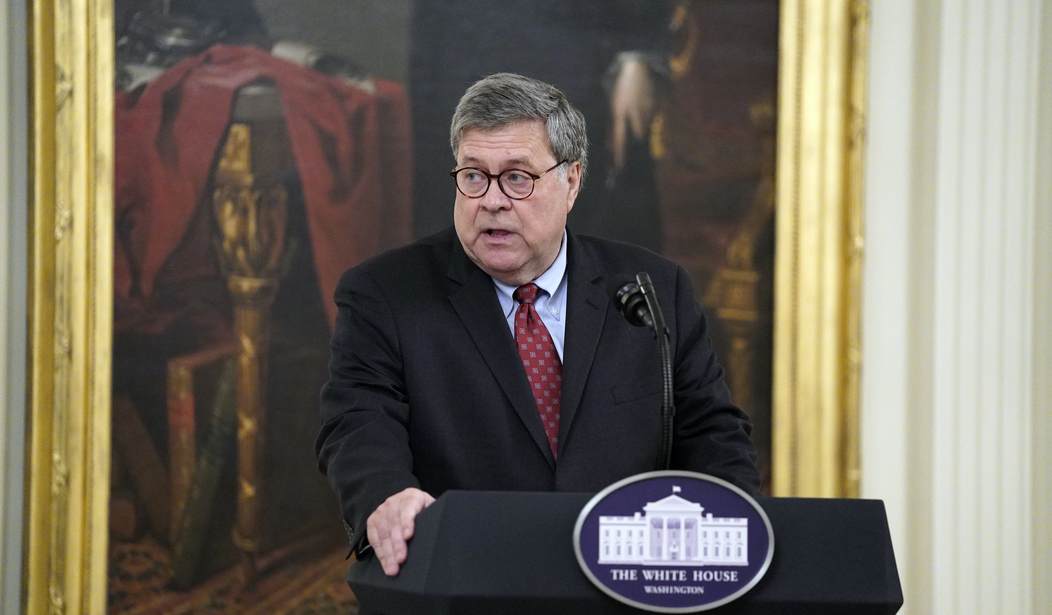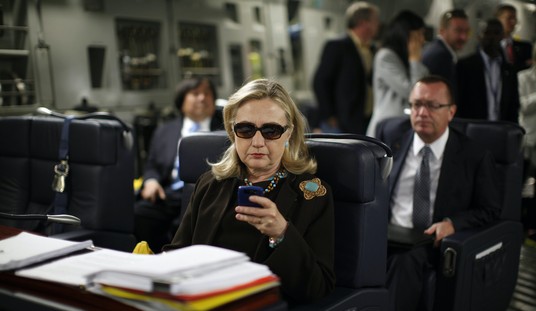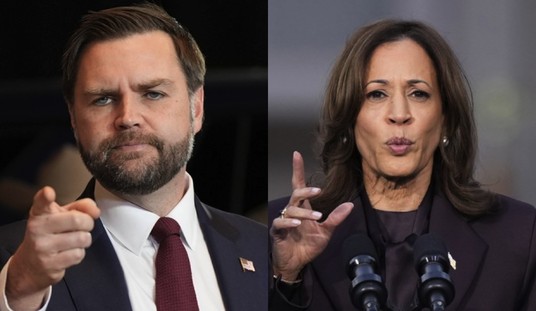
This is one of those subjects where everyone is confident that a policy exists, and they know what the policy is, but no one can formulate in precise terms exactly what the policy says or means.
That’s because there is no policy at DOJ which prevents the taking of enforcement action — whether that is an overt investigative step or seeking the return of an indictment – which is linked to the number of days remaining before a scheduled election.
None. No policy. Not written down anywhere. Never cited. Never quoted. Never enforced.
There is a policy that prohibits the taking of any overt enforcement action for the purpose of affecting an election. That is prohibited. But that policy doesn’t prohibit taking the same enforcement action when there is no such nefarious intention.
All of this was spelled out quite explicitly by the Inspector General of the Department of Justice, Michael Horowitz, in the IG Report on the actions of Jim Comey and others with regard to “Mid-Year Exam” — the FBI investigation into the use by Hillary Clinton of a private email server located in her residence for official government business.
The issue addressed by the IG Report was the timing, motives, and content of the statements made by FBI Dir. Comey in July and Oct. 2016, concerning the specifics of that investigation. The subject of DOJ policy with regard to disclosures or actions during an election cycle goes to the heart of the issue that the left-wing media is trying to force down the throat of the public and AG Barr — that US Attorney Durham should take no action in connection with his ongoing investigation if it involves returning indictments of people connected to the Obama Administration’s handling of the Crossfire Hurricane investigation of Pres. Trump and his 2016 Campaign. Page 16-18 of the Report cover DOJ policy on public activities and announcements that might impact an upcoming election.
In 2008, 2012, and 2016, the then Attorney General issued a memorandum “to remind [all Department employees] of the Department’s existing policies with respect to political activities.” These memoranda are substantially similar. Each memorandum contains two sections, one addressing the investigation and prosecution of election crimes and the other describing restrictions imposed on Department employees by the Hatch Act. In its election crimes section, the 2016 memorandum requires consultation with PIN [Public Integrity Section] at “various stages of all criminal matters that focus on violations of federal and state campaign-finance laws, federal patronage laws and corruption of the election process.
The policies apply to election-related crimes such as campaign finance violations, and the general restrictions on DOJ employee activities in campaigns under what’s known as the Hatch Act. The policy does not address the day-to-day operations of the Department in non-election crimes cases. The IG Report continues:
[T]he 2016 memorandum recommends that all Department employees consult with PIN whenever an employee is “faced with a question regarding the timing of charges or overt investigative steps near the time of a primary or general election,” without regard to the type or category of crime at issue. Ray Hulser, the former Section Chief of PIN who currently is a DAAG in the Criminal Division, told us that this policy does not impose a “mandatory consult” with PIN, but rather encourages prosecutors to call if they have questions about investigative steps or criminal charges before an election.
This relates directly to the matters now under investigation by Durham. But the policy only “recommends” Durham consult with Public Integrity, it does not require him to do so, nor does it prohibit him from acting based on some arbitrary date and the calendar and the prospect that one side or the other might be politically embarrassed by DOJ action such as the return of an indictment against loyalists of one particular party.
The Report goes on:
After the FBI released its October 28, 2016 letter to Congress informing them that the FBI had learned of the existence of additional emails and planned to take investigative steps to review them, …. former Department officials discussing a longstanding Department practice of delaying overt investigative steps or disclosures that could impact an election … cited the so-called “60-Day Rule,” under which prosecutors avoid public disclosure of investigative steps related to electoral matters or the return of indictments against a candidate for office within 60 days of a primary or general election.
This is a reference to Dir. Comey sending a letter to Congress regarding the preliminary review of Anthony Wiener’s laptop, which had disclosed the presence of a significant number of Hillary Clinton’s emails to/from her private email address. Comey was loudly criticized in the press for having made a public announcement so close to the date of the election, with those critics citing the “60-Day Rule” as noted by the IG Report. But as the IG concluded, no such rule actually exists.
The 60-Day Rule is not written or described in any Department policy or regulation.
The IG could not put it any more clear or succinct than that. There is no written policy or regulation. I think I read that somewhere above. Look back and see if you can find it.
But, there is something of a “general practice” which is acknowledged and sought to be adhered to, as the IG explained:
Nevertheless, high-ranking Department and FBI officials acknowledged the existence of a general practice that informs Department decisions. Former Director Comey characterized the practice during his OIG testimony as “a very important norm which is…we avoid taking any action in the run up to an election, if we can avoid it.” Preet Bharara, the former U.S. Attorney for the Southern District of New York, told us that the Department’s most explicit policy is about crimes that affect the integrity of an election, such as voter fraud, but that there is generalized, unwritten guidance that prosecutors do not indict political candidates or use overt investigative methods in the weeks before an election.
Again, from Comey and Preet Bharara — Obama’s US Attorney for the Southern District of New York — the only “explicit policy” is about crimes involving the election process. And even the “unwritten guidance” only concerns not indicting political candidates.
Attorney General Barr has said on multiple occasions that the Durham investigation is not examining possible criminal charges for anyone running for office. That satisfies the “unwritten guidance”. The investigation does not involve election process crimes. That satisfies the DOJ’s explicit policy restrictions. So what else might there be?
There isn’t anything. And just to show you how illiterate some senior DOJ officials are on this question, consider the following passage from the IG Report:
Several Department officials described a general principle of avoiding interference in elections rather than a specific time period before an election during which overt investigative steps are prohibited. Former AG Lynch told the OIG, “[I]n general, the practice has been not to take actions that might have an impact on an election, even if it’s not an election case or something like that.”
Fail.
Former DAG Yates stated, “I look at it sort of differently than 60 days. To me if it were 90 days off, and you think it has a significant chance of impacting an election, unless there’s a reason you need to take that action now you don’t do it.”
Fail.
Former Principal Associate Deputy Attorney General Matt Axelrod stated, “…DOJ has policies and procedures on…how you’re supposed to handle this. And remember…those policies and procedures apply to…every election at whatever level…. They apply, you know, months before…. [P]eople sometimes have a misimpression there’s a magic 60-day rule or 90-day rule. There isn’t. But…the closer you get to the election the more fraught it is.”
Pass — barely. There is no “policy or procedure”. There is only an unwritten practice of limited application. He gets partial credit for accurately stating there is no 60 or 90-day rule.
The IG concludes with the correct formulation of how DOJ treats this issue — which is exactly consistent with the approach taken by AG Barr and US Attorney Durham:
Hulser told the OIG that there was “a sense, there still is, that there is a rule out there, that there is some specific place where it says 60 days or 90 days back from a primary or general [election], that you can’t indict or do specific investigative steps.” He said that there is not any such specific rule, and there never has been, but that there is a general admonition that politics should play no role in investigative decisions, and that taking investigative steps to impact an election is inconsistent with the Department’s mission and violates the principles of federal prosecution.
Hulser said that while working on the Election Year Sensitivities memorandum, they considered codifying the substance of the 60-Day Rule, but that they rejected that approach as unworkable, and instead included the general admonition described above. Citing PIN guidance, Hulser told OIG that a prosecutor should look to the needs of the case and significant investigative steps should be taken “when the case is ready, not earlier or later.”
The prosecutor should take “significant investigative steps … when the case is ready, not earlier or later.”
So whenever you see a left-wing former Obama DOJ official claim that Durham and Barr would be violating DOJ policy by bringing any indictments between now and November, blow them up on Twitter — and link this story.
THERE. IS. NO. SUCH. POLICY.














Join the conversation as a VIP Member